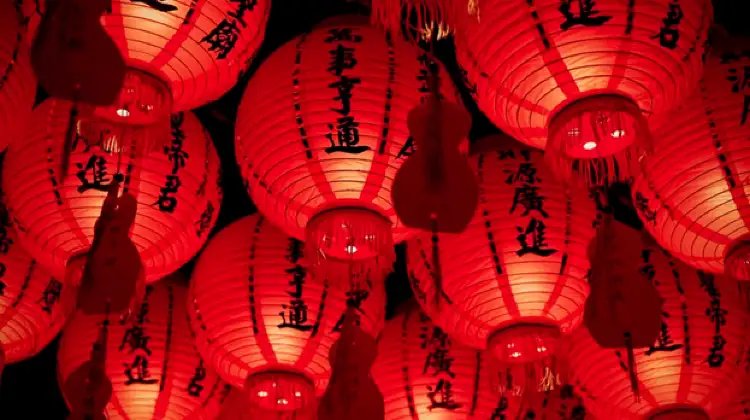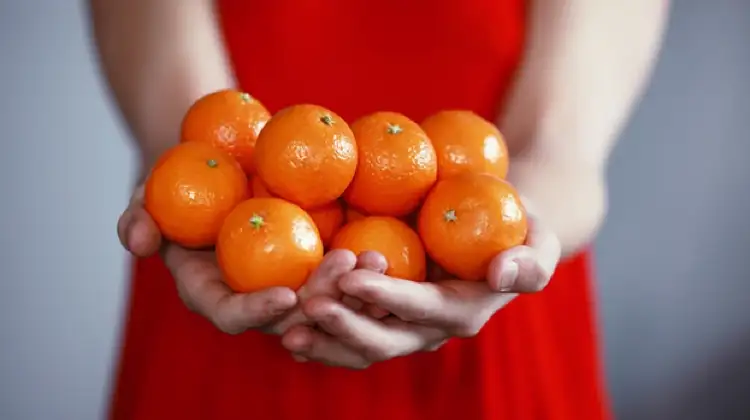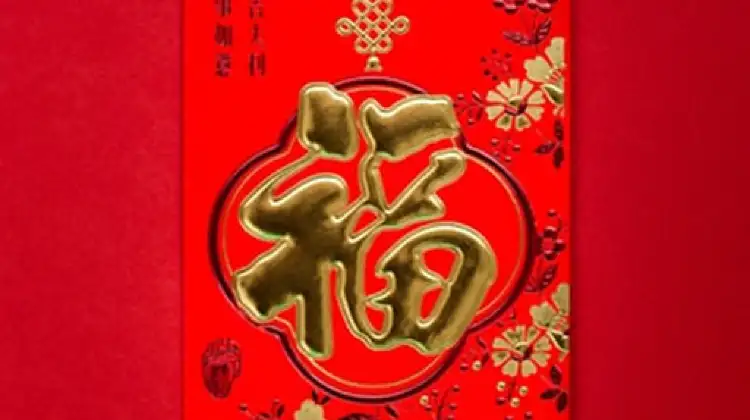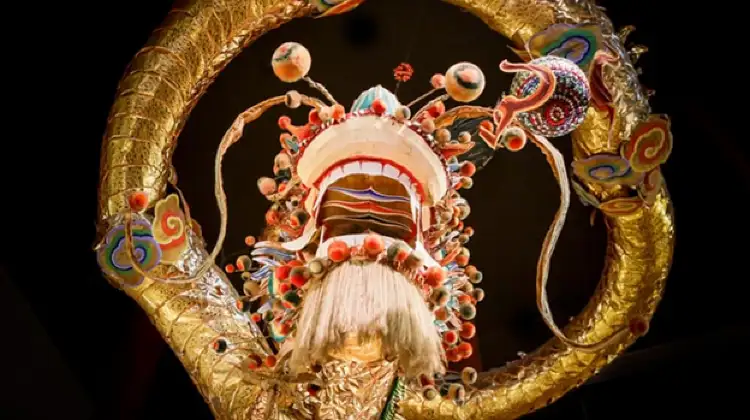New Year's Day celebrations may long be over for countries in the West, but the Chinese New Year is yet to arrive - and with it comes a wide range of Chinese New Year traditions! This year, Chinese New Year's Day falls on January 29, 2025. According to Chinese zodiac traditions, 2025 is the Year of the Snake, and it represents power, honor, luck, and success. It is associated with qualities such as confidence, intelligence, enthusiasm, and ambition.
Chinese New Year is celebrated in mainland China, as well as in countries with a large Chinese population, including Malaysia, Singapore, Vietnam, and the Philippines.
Chinese New Year is never just a single-day celebration. In fact, in mainland China, the Chinese New Year public holiday officially lasts 7 full days, with work and school suspensions. Celebrations span days immediately preceding the first day and extend all the way to the sixth day of the new calendar, varying from year to year depending on what is considered auspicious.
What are these traditions and taboos, you ask? Read on to know more!
Chinese New Year Traditions: Preparing the Home

(Source: Henry & Co./Unsplash)
"Spring Cleaning" takes on a more symbolic meaning as part of Chinese New Year traditions. Families thoroughly clean their homes as a symbolic gesture of "sweeping away" the past year's bad luck.
According to Chinese New Year traditions and beliefs, the start of the New Year is also a time when many gods descend and visit homes and cleaning homes is a way to show reverence to and appease the visiting deities.
Because red is considered a lucky color, decorating the homes with red lanterns and red couplets are also an integral part of preparing the home for the Chinese New Year. These couplets usually contain poetic lines that express well-wishes, appreciation for nature, or love for the country.
Chinese New Year Traditions: Food

(Source: Sharon McCutcheon/Unsplash)
Food is an important element in Chinese New Year traditions. Certain foods are believed to bring good luck, and are either exchanged or shared during meals. Orange, for example, are believed to be lucky because the Chinese word for mandarins sounds like the word for gold. As such, visitors are expected to give a pair of organes to their host and the host must give visitors a pair of organes in return.
It is also common for families to share a feast of "7 lucky foods" for their Chinese New Year Eve feasts. According to Chinese New Year traditions, these food items symbolize the good fortune they wish to invite for the coming year. These auspicious foods include fish for prosperity, dumplings and spring rolls for wealth, sweet rice balls for family unity, glutinous rice cakes for higher income or job promotion, and longevity noodles for happiness and long life. Families also serve what are considered "good fortune fruits" for abundance and wealth.
Food gifts are also an inevitable part of Chinese New Year traditions and celebrations. It is common to give gifts of alcohol, sweets like candies, as well as tea during this time of the year.
Chinese New Year Traditions: Red Envelope

(Source: Mae Mu/Unsplash)
Chinese New Year traditions revolve largely around bringing good fortune and warding off evil spirits that bring bad luck, disease, or death. Such is the role of giving of money wrapped in red envelopes.
According to legends, an evil demon by the name of Sui came down to terrorize children on New Year's Day. One New Year's Eve, the parents of one child thought to protect their child from the demon by keeping him up all night. They gave him 8 coins to play with. The child eventually fell asleep with the coins, and when Sui came to terrorize the child, the glare of the coins scared him off and spared the child. After that, parents started giving their children coins wrapped in red paper - and eventually, money wrapped in red envelopes - to scare off Sui and protect their children.
According to long-held Chinese New Year traditions, the red envelope is given to children and grandchildren by established married couples and single adults. It is also customary for adult children, married or unmarried, to gift their parents and grandparents red packets to wish them good health and wealth.
While the tradition put more emphasis on the red envelope, there is also a lot of thought given to what's inside. Amounts in even numbers are deemed more auspicious, except for the number 4, because the Chinese word for 4 sounds like "death" and is considered unlucky. Crisp, new bills are also believed to be luckier than old ones, so it is not uncommon for people to have their old bills exchanged for new ones at the bank.
Chinese New Year Traditions: Firecrackers and Fireworks
Chinese New Year celebrations are never complete without firecrackers! This, like many other Chinese New Year traditions, is done both as an effort to scare away bad luck and evil spirits, and to express joyfulness and celebration. Firecrackers used during Chinese New Year celebrations are usually a string of hundreds of little firecrackers, wrapped in lucky red paper.
Chinese New Year Traditions: Lion and Drag

(Source: Gustavo Miranda/Unsplash)
Dragon and lion dances are an integral part of Chinese New Year celebrations. Although these dances are performed on other important festivals, they are most associated with New Year celebrations. Like many other elements of Chinese New Year traditions, the lion and dragon dances are said to bring good luck and ward off evil and bad luck.
The first written record of the dragon dance dates back to the Han Dynasty (206 BC–220 AD) and was originally performed as part of a ceremony to pray for rain. The rain dance eventually moved on to become a form of entertainment, and then became an established part of important festivities. By the time of the Tang (618–907) and the Song (960–1279) Dynasties, the dance has become an established part of Chinese New Year traditions.
Although there are regional variations to the dance, they share many common elements. For example, the dragon, lifted on poles, should come with an odd number of joints. The length of the dragon is also vital in how lucky it is. The longer the dragon, the greater the luck it brings.
The Lion Dance, on the other hand, is commonly associated with the legend of the evil beast known as Nian, that ravaged villages and left destruction in its wake. Villagers created a model of a monster made from bamboo and paper, parading the monster to the loud beating of drums, and succeeded in warding off Nian.
The lion dance also comes with regional variations, but common elements exist. For example, lion dances are performed by two dancers: one to manipulate the head and the other, the tail. Green and red envelopes will also be offered to the dancing lion; the green will be "plucked" then "spat out" by the lion, and then a red envelope will be given as a reward.
Chinese New Year Traditions: Taboos
Chinese New Year traditions also come with a list of taboos that should be avoided as they bring misfortune. For example, cleaning the house, washing clothes, and washing the hair should be avoided as they drive away good fortune. All cleaning should be done before the holiday season. It is also taboo to cry or break dishes. During the length of the festivities, people should also avoid borrowing or lending money, slaughtering animals, or visiting the hospital as these invite bad luck, illness, or death.
And in the true fashion of Chinese New Year traditions, we wish you a happy, abundant, healthy, and wealthy Year of the Snake!
FAQs About Chinese New Year Traditions
When is Chinese New Year for 2025?
The Chinese New Year falls on Janurary 29, 2025.What is the Chinese New Year animal sign for 2025?
2025 is the Year of the Snake.Where is Chinese New Year celebrated?
Besides mainland China, Chinese New Year is also celebrated in other countries including Singapore, Vietnam, Malaysia, and the Philippines.How is the Chinese New Year date determined?
The Chinese calendar coincides with the lunar calendar that is based on the phases of the moon. The Chinese New Year always falls around the first New Moon of the lunar year.What are the most common Chinese New Year taboos?
Taboo things and activities around the Chinese New Year are said to bring bad luck like loss of money, illness, and death. Common taboos include cleaning the house on New Year's Day, as are washing the hair and clothes as they are believed to drive away good fortune. Wearing black, lending or borrowing money, crying, and visiting the hospital during the whole period immediately before and after New Year's Day are also considered unlucky.
